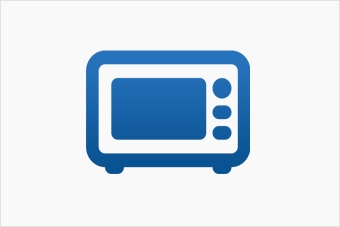If you ever wondered what is the most efficient way of using your house appliances, here are some tips for you:
WATER HEATER
In order to use a water heater in the most efficient way, it should be set at a temperature between 50 and 55°C. Consumption of bathroom water heater accounts for cca. 15% of the total electricity consumption of a household.
Storage water heater and kitchen water heater, combined with the dishwasher, consume averagely cca. 60% of electricity in a household per annum. Use them only when needed.
REFRIGERATOR
Check the thermostat: the most appropriate temperature for a refrigerator is between 3 and 5°C, and 0° for a freezer.
Place refrigerators and freezers in the coolest part of the house (not near stove or boiler) and avoid exposing them to sunlight.
While placing a refrigerator and freezer be cautious to leave enough space for ventilation between the outer part of the appliance and wall (about 10 cm) in order to prevent overheating which would result in increase of electricity consumption. Do not hold the refrigerator opened more than required and close the door well after use.
Do not put hot or warm food in refrigerators and freezers (wait for it to cool down). Defrost food timely and thus you will save electricity and extend the service life of these appliances (cleaning of refrigerator is required when thickness of ice exceeds 0.5cm).
When choosing a refrigerator, be careful not to buy too big one-the rule is: a refrigerator with volume of 120-180 litres is adequate for two adults, while another 20 l of volume should be added for each additional member of the family.
WASHING MACHINES
Always choose washing program with the lowest water temperature sufficient for the laundry to be washed well. From the stand point of energy efficiency, it is better to wash laundry when washing machine drum is full, instead of running two separate washing processes with half-full drums. Try to comply with standardized quantity of laundry for certain type of drum (usually 5-6 kg) since laundry will not be properly washed if the drum is overloaded, while in case of insufficient drum loading energy will be needlessly wasted.
The dish washers should be used only when loaded to the maximum extent. Scrape large food chunks off of the dishes prior to putting them into a dish washer. Filters and salt level should be checked and the interior of the dishwasher cleaned on regular basis.
KITCHEN STOVES AND OVENS
Always put the lid on pot when cooking – this is the way to keep the heat within the pot longer and reduce steam condensation in the kitchen. Heat only the necessary quantity of water when preparing tea or coffee. Always use burner of the optimum size for the selected pot. Microwave ovens are more energy efficient than ordinary ovens. When cooking on gas stove one should take care that flame is not too strong and prevent it from reaching the pot.
Never heat up empty burner and switch it off just before the meal is ready – burner will remain warm, cooking process will continue, while electricity consumption will be reduced and money saved accordingly. Open oven door only if needed – significant amount of heat is wasted each time the oven door is opened. Ovens and burners should be cleaned regularly, since accumulated dirt and grease reduce their efficiency.
-
11.12.23
Public Invitation for EPCG-Željezara Nikšić

-
26.07.23
DJUKANOVIC: PERSPECTIVES ON ELECTRICITY GENERATED BY SOLAR POWER PLANTS AS PART OF SOLARI 3000+ AND 500+ PROJECT

-
28.10.22
XXV EXTRAORDINARY EPCG SHAREHOLDERS’ MEETING TOOK PLACE

-
28.10.22
FROM THE PROFESSIONAL POINT OF VIEW: EPCG IN THE CONTEXT OF THE GLOBAL ENERGY CRISIS






